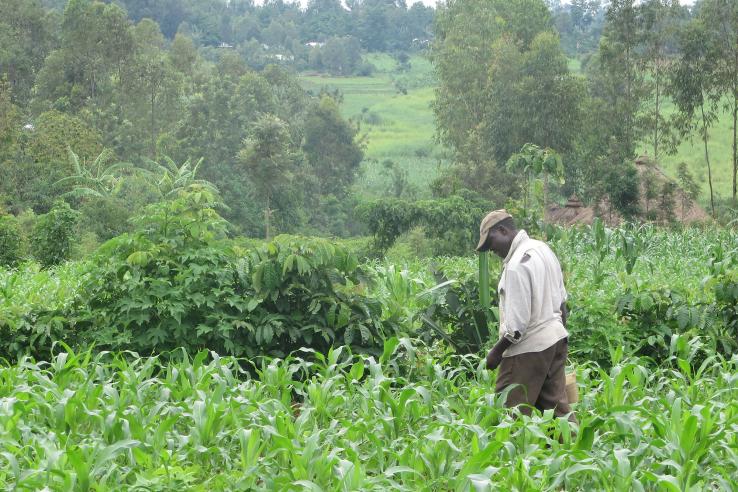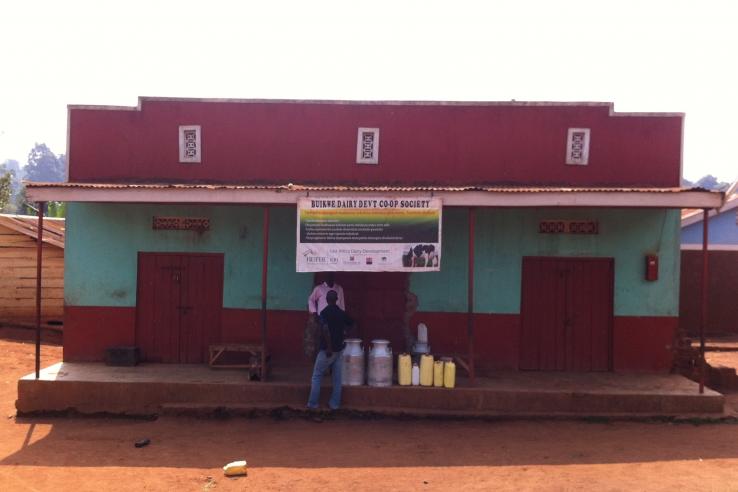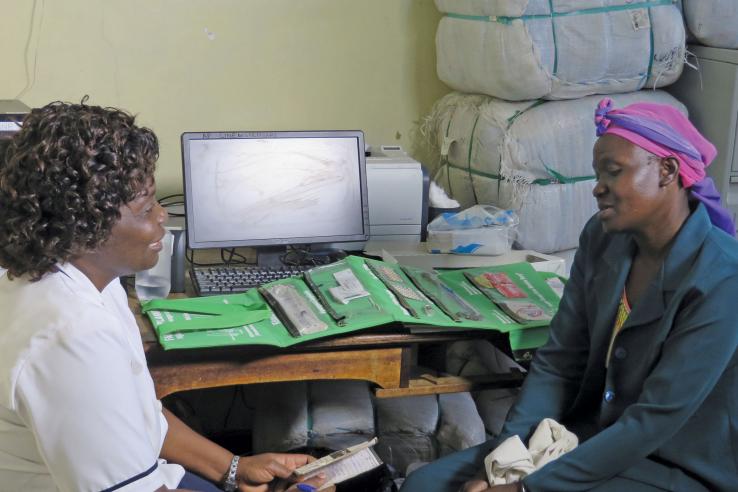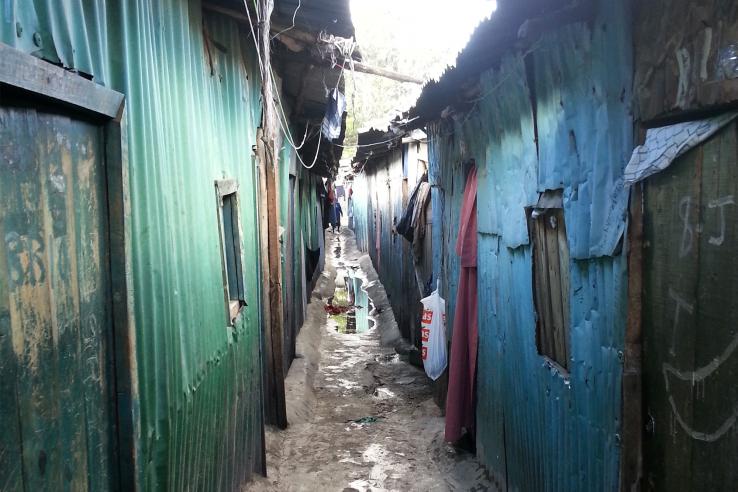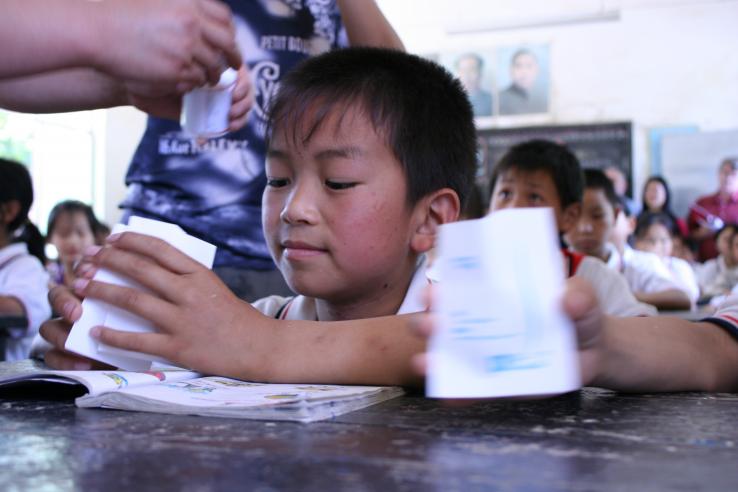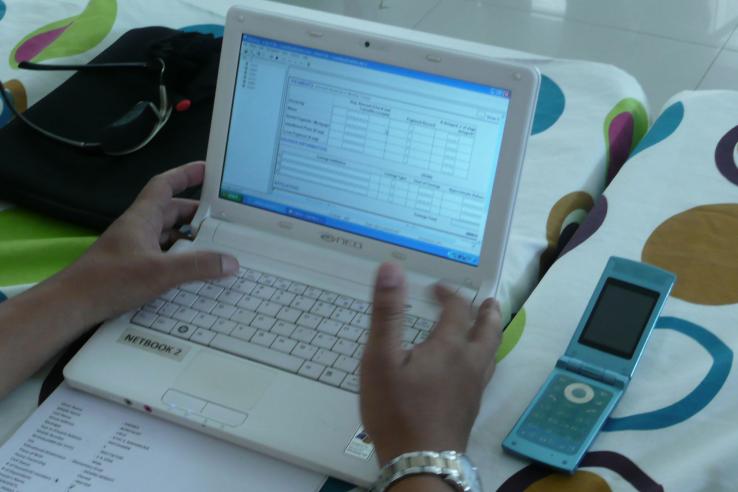Displaying 3241 - 3255 of 8334
Evaluation
Researchers conducted a randomized evaluation in western Kenya to test how farmer participation in agronomic trials impacted their experimentation on their own farms with different input combinations and impacted their use of high-quality inputs, yields, adoption of new crops, and profitability. Farmers, particularly those with higher skills, who participated in the trials were quick to experiment and learn about different combinations of inputs and practices. However, their agricultural profits decreased across five agricultural seasons, possibly due to experimentation with new combinations of inputs and practices, while lower skilled farmers benefitted from higher skilled farmers' experimentation.
Evaluation
Researchers evaluated the impact of a farmer-to-farmer training program on Ugandan farmers’ knowledge and use of improved dairy farming practices, as well as dairy production and revenues. Overall, the farmer-to-farmer training program improved farmers’ knowledge, productivity and revenues.
Evaluation
Fostering youth entrepreneurship could help decrease youth unemployment. However, entrepreneurs face a number of barriers to launching and expanding their businesses. Researchers introduced a youth entrepreneurship reality TV show to evaluate the effects of a television show and entrepreneurial support activities on viewers’ attitudes, business practices, and employment status.
Evaluation
In the United States, researchers evaluated the impact of a cognitive behavioral therapy (CBT) program designed to teach high-risk male students in secondary schools to regulate harmful, automatic behaviors. Results demonstrated that the program led to a significant drop in arrests per student, especially for violent crimes, and increased school engagement and high school graduation rates.
Evaluation
Researchers partnered with a Protestant church district in metropolitan Bavaria, Germany, to conduct a field experiment to reveal taxpayers’ motivations to comply with a local church tax. Researchers found that simplifying the tax notification, highlighting the possibility of tax enforcement, and offering rewards and recognition for timely payment affected taxpayers’ compliance behavior.
Evaluation
In partnership with Jacaranda Health, researchers evaluated a family planning program that provided pregnant women with varying combinations of vouchers for free modern contraception and reminders of the importance of family planning. While none of the combinations increased self-reported use of modern contraception in the short term, the combination of the voucher and reminder did increase its use in the medium term.
Evaluation
Researchers examined whether individuals gave more after receiving information about a charity’s impact. They found that providing potential donors with rigorous evidence about a charity’s effectiveness increased the likelihood of giving to a major U.S. charity for large prior donors, but decreased the likelihood of giving for small prior donors.
Evaluation
Despite expanding access to sanitary options such as community toilets, many individuals, especially in urban slums, continue to practice open defecation. One potential explanation is that open defecation has become an ingrained habit. Applying lessons from psychology and neuroscience, researchers are evaluating whether a combination of economic incentives and a marketing campaign can foster a new habit—using hygienic latrines instead defecating in the open—among slum dwellers in Kenya.
Evaluation
In many developing countries, absenteeism, lack of accountability, and corruption among public employees prevent the effective distribution of public services. Researchers examined how performance incentives and increased resources for school principals affected the implementation of a school-based nutrition program targeting anemia in rural China. Large incentives and large block grants individually led to significant reductions in anemia, but when schools received a large block grant, there was no additional effect from adding large incentives.
Evaluation
Researchers examined whether a simple, inexpensive information campaign could change students’ knowledge and perceptions about post-secondary education. When exposed to an informational video, students who had been initially unsure about pursuing higher education reported expectations of higher returns to a post-secondary degree, lower concerns about costs, and also reported a greater likelihood of enrolling in a post-secondary institution. Students who had already been planning to pursue post-secondary education were more likely to believe they were eligible for grant aid.
